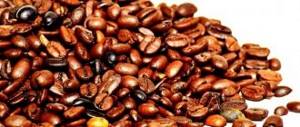Caffeine causes insomnia
It is immediately worth noting that caffeine has an invigorating effect. However, its action lasts for 3-4 hours. To be sure that caffeine does not interfere with your sleep, it is enough not to drink coffee 5-6 hours before bed. Insomnia from caffeine is only possible if a person is hypersensitive to it. By the way, we previously collected 7 plants for you that will help you get a good night's sleep. To get a good night's sleep, you need to know that many of our knowledge are myths that can harm our sleep. That's why we suggest reading about the 10 most popular myths about sleep. We recommend!
Myths about coffee: not addictive, but bad if brewed in a Turkish coffee pot
We talk about the most popular myths about coffee
Photo: Shutterstock
Maria Popova , one of the most famous authors of a blog about a healthy lifestyle for big and small @smart_manya, nutritionist, founder of the HealthNorms project, presented the book “The Dark Side of a Healthy Lifestyle,” where she broke down the most popular misconceptions about proper nutrition. She devoted a separate chapter to the topic of coffee, its harm and obvious benefits. We talk about the most popular myths about him and why they are just misconceptions.
1. Coffee is addictive
If you look closely at the WHO classification, caffeine is not among the addictive substances. So why do lovers of the invigorating drink experience such withdrawal symptoms when they give up the traditional morning cup of coffee? But the fact is that caffeine is a chemical substance similar in structure to the neurotransmitter adenosine - the one that is responsible for inhibiting the nervous system. Because of this similarity, caffeine binds to the receptors of nerve cells, occupying a place that is completely not intended for it: an adenosine molecule should “sit” there. That is, caffeine is not a gas pedal, but an “anti-brake.” And as soon as the molecules leave the receptors, the accumulated adenosine is released into the synaptic cleft in large quantities. This causes increased braking. This is why drowsiness sets in after drinking coffee. And therefore, when one fine day a person decides to become a healthy dieter and give up this “bad habit,” an increased amount of adenosine turns him into a sleepy fly.
2. Caffeine Causes Hypertension
Doctors came to this conclusion after analyzing studies of patients whose blood pressure increased after heavy doses of coffee. But later, after analyzing large statistics of coffee drinkers, scientists discovered that the body of tens of thousands of people does not react in any way to large doses of Americano in the morning. The “experimental subjects” were simply worried at the sight of the doctor, and not because of the coffee they drank before measuring their blood pressure, concludes Maria Popova. And he adds that modern studies have not found any significant connection between coffee consumption, increased blood pressure and heart disease.
Recent studies show that the norm for daily coffee consumption is 2-4 cups.
Photo: Shutterstock
3. Coffee causes cancer
Another myth based on a story about a lawsuit in California. The non-profit organization CERT sued coffee producers in 2010 because they were silent about acrylamide, a toxic compound that is formed as a result of the Maillard reaction when roasting coffee beans. The trial lasted 8 years and, as a compromise, coffee shops and coffee producers agreed to label their products. But in fact, acrylamide is present in roasted coffee in extremely small doses. Its peak value occurs at the initial stage of roasting. Then, during the roasting process, its content drops to 20-30% of the initial level.
And according to the US Cancer Society, the development of several types of cancer was recorded only in laboratory rats that received doses of acrylamide that exceeded the maximum possible in human food by 1000-10,000 times. Well, that is, a person is simply not capable of drinking such an amount of coffee that could poison him.
There is indeed evidence that unfiltered coffee negatively affects bad cholesterol levels and markers of inflammation.
Photo: Shutterstock
4. Turkish coffee is harmful
There is indeed evidence that unfiltered coffee negatively affects bad cholesterol levels and markers of inflammation. This means that it is better to pass coffee brewed in a Turk through a paper filter. Maria Popova recommends a simple life hack: take a paper napkin, put it in a strainer and pass the coffee through this structure - cheap and cheerful. And by the way, it is better to give preference to the Arabica variety.
5. Drinking more than five cups of coffee is harmful.
Recent studies show that the norm for daily coffee consumption is 2-4 cups. True, the size of the mug is not indicated anywhere, but there are figures about the norm of caffeine - about 300 mg per day. These are the numbers you need to stick to.
BUY THE BOOK “The Dark Side of Healthy Lifestyle”
But I haven’t written about myself for a hundred years. It's time. So, this blog began with the promotion of plant-based nutrition. For there was one hundred percent certainty that the Grail to iron health and eternal youth was hidden behind heads of broccoli and spinach. It so happened that when the question arose of deciding on proper nutrition, it was herbivory that seemed most tempting to me. About four years of rituals in the kitchen with soaking, sprouting and squeezing juices flew by unnoticed, but very interesting. Old-timers of the blog, I’m sure, remember recipes in the mix-and-you’ll find style. Then I got tired. Either ferritin 15 mcg/l was to blame, or B12 deficiency, or the soul was asking for new sensations. My own clinical case suggested that self-realization may not only lie in calls to eat more legumes. But also in practical help with diagnosing your health. Thus began a new stage of passion: analysis. The idea that every mother can keep her finger on the pulse of her family’s health completely captivated me. It turned out that you can avoid many mistakes in searching for the causes of your illness just by correctly deciphering a clinical blood test and several other parameters of the most common deficiencies. You can also help your children grow and develop normally - simply by understanding the numbers on the blood test form. A timely visit to a doctor based on their results can work a miracle. Those whose children started talking/walking/made a leap in development thanks to the elimination of deficits will understand what I mean. Becoming a laboratory diagnostics guru is not my path. Understanding the most common health problems, learning how to detect them and taking preventive measures is the main goal. And this is what the blog is about now. I live by this, I am inspired and I believe that I am helping people. May the clinical recommendations be with us. And yes, there are no consultations or treatment prescriptions here. But there are plenty of tools to help you understand where to look for the most common health problems. And then go to the doctor.
Photo:
Coffee helps you lose weight
This myth is quite popular and has some truth to it. Indeed, coffee speeds up metabolism, but only at the initial stage. When you start drinking coffee regularly, your body will get used to it and no accelerated metabolism will occur.
We hope you enjoyed the coffee myths we collected. There are a huge number of types of coffee in the world and we talked about one of them. We invite you to get acquainted with one of the most expensive coffees on the planet - kopi luwak. In the article we explained how it is produced and why it is expensive.
Absolute myths about coffee
Myth #1: You need to use boiling water to make coffee.
It is possible, but not advisable if you want to get a flavorful and most healthy drink. If during cooking/brewing the water temperature rises above 90 degrees, coffee will begin to lose important beneficial components - essential oils, trace elements and other valuable compounds. At the same time, the taste also changes for the worse, losing all shades and nuances. in the language of professionals, this is called overextracting.
Methods of preparing coffee that do not require boiling water are pour over, Chemex, Aeropress, French press and cup brewing.
Myth #2: You should drink coffee while it's hot.
This is purely a matter of personal preference. Practice shows that there is no difference between hot coffee and cold coffee in terms of its benefits, and as for taste, this is strictly individual for each of you. But it is known for certain that doctors do not recommend drinking freshly prepared coffee: any drinks that are too hot are harmful to the esophagus, stomach and oral cavity.
Myth #3: Coffee dehydrates you.
Not true. Why? Just look into your coffee cup. Do you see liquid there? Yes, yes, you read that right, this is water. The amount of H2O in a cup with coffee remains the same as without it. And this liquid is enough to compensate for the dehydrating effect of caffeine (which has long been recognized as too minor to pay attention to at all). But if this argument is not enough, read our article that we wrote on this topic, it has many useful sources confirming this information.

Myth #4: Coffee helps you sober up.
No. Caffeine may make an inebriated person more alert, but it does not reverse the negative cognitive effects of alcohol. What's more, scientists from the American Psychological Association believe that the effect might actually be worse: People who drink alcohol and caffeine at the same time may falsely feel alert and alert enough to handle potentially dangerous tasks (such as driving a car, using a traumatic techniques, swimming or climbing).
Myth No. 5: Coffee inhibits growth.
No no and one more time no. These are, as they say, old wives' tales. It is unclear how this myth originated (perhaps it is based on another concerning the leaching of calcium from the body), but there is certainly no scientific evidence to support it.
Regarding calcium, scientists adhere to the following point of view:
“The negative effect of caffeine on calcium absorption is quite small; it can be completely compensated for by just 1-2 tablespoons of milk. "There is no evidence that caffeine has any harmful effects on bone health in people who take the recommended daily allowance of calcium."
In a word, don’t forget to add calcium to your diet, and this myth about the dangers of coffee can be safely discarded.
Ground coffee Lebo “Prince”, for Turkish, 100 g 79 rub.
Coffee beans LavAzza “Qualita Oro”, 500 g 752 rub.
Ground coffee Lavazza “Crema e Gusto”, 250 g 258 rub.
Lavazza “Qualita Oro” coffee beans, 250 g 351 rub.
Ground coffee Lebo “Extra”, for Turkish, 75 g 61 rub.
Ground coffee Lavazza “Qualita Oro”, in a tin can, 250 g 400 rub.
Bean coffee Bushido “Red Katana”, 1000 g 1921 rub.
Coffee beans Lavazza “Qualita Oro”, 1000 g 1550 rub.
Buy coffee on TEA.RU
Myth #6: Roasting affects the strength of coffee
No, roasting does not affect the caffeine content of the bean. Contrary to two diametrically opposed points of view that claim that heat treatment makes the bean less or more strong, in fact the amount of caffeine does not change: it is NOT destroyed during roasting (deeply roasted coffee cannot be less strong) and does not increase in amount (deeply roasted coffee does not may be stronger).

Myth No. 7: Different types of coffee do not differ in caffeine content.
This is wrong. Robusta contains approximately twice as much caffeine as Arabica. In addition, the amount of this substance can vary within one variety, depending on the terroir and the method of processing the harvested grain.











